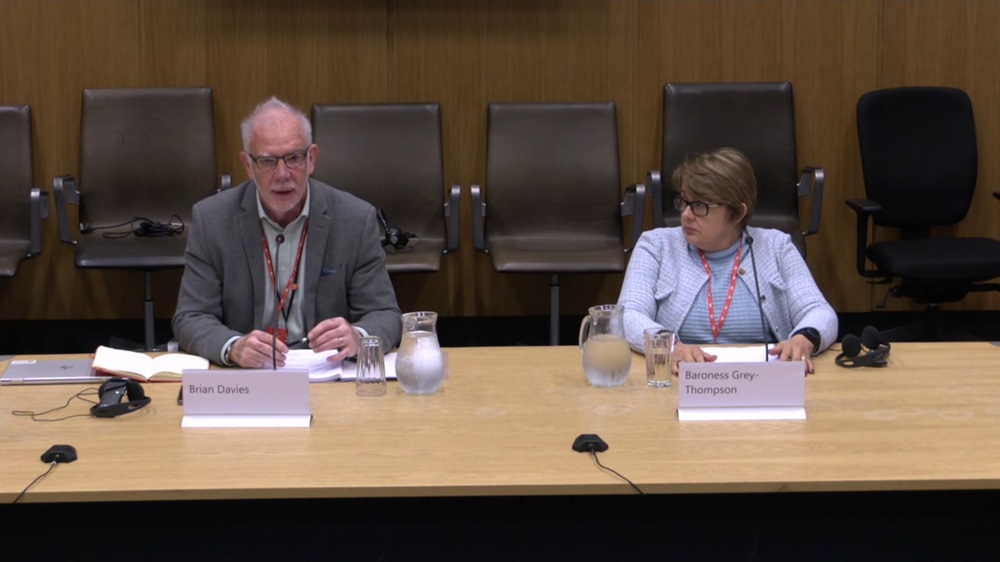Sports Wales warns of devastating impact of further budget cuts

Chris Haines, ICNN Senedd reporter
Sports Wales warned any further cuts to its budget by the Welsh Government next year would have a potentially devastating impact.
Brian Davies, chief executive of Sport Wales, and Tanni Grey-Thompson, its chair, gave evidence to a Senedd inquiry about the impact of culture funding cuts on October 9.
Delyth Jewell, who chairs the culture committee, asked what would happen if cuts to Sports Wales’ budget were repeated in next year’s budget which will be published on December 10.
“It would be a big problem,” Mr Davies replied, saying Sport Wales was fortunate this year to be able to absorb the 10.5% cut from the Welsh Government.
He said further reductions would pose an “existential” challenge for smaller governing bodies that are funded by Sport Wales, which is responsible for developing and promoting sport.
‘False economy’
Mr Davies suggested this year’s cut has impacted participation and equality, adding that Sport Wales has tried to minimise this by only passing on a 3.5% cut to partners.
He told the committee: “Cutting sport, which is a fantastic tool for the preventive health agenda, is a false economy … for every £1 of public money spent on sport and physical activity, there’s a £4.44 return in terms of social investment for Wales.”
Sport Wales’ written evidence said the £2.5m cut to its budget in 2024/25 is estimated to have led to a loss of £11.1m in terms of social return on investment.
Baroness Grey-Thompson said: “We might not see the impact of it for a couple of years actually … but there will be an impact in terms of what people are able to deliver.”
Pressed by Labour’s Lee Waters about suggestions of an “instinct to protect elite sport first”, Mr Davies said: “No, I don’t think that’s fair – in fact I know that’s not correct.
“Governing bodies, in the main … have such a broad range of responsibilities for their sport in the sector – elite sport is only one. There’s an awful lot that goes on.”
‘Critical’
Baroness Grey-Thompson added that Sport Wales has moved away from demanding medal targets because it drives a culture that impacts grassroots sport.
The Paralympian said: “Partners understand that if you don’t develop that broad base, you’re not going to get the medallists.”
She stressed the importance of physical activity, calling for a focus on young people and “harder-to-reach, easier-to-ignore” groups to develop good patterns of behaviour.
Mr Davies agreed about the importance of prevention as he cautioned that Sport Wales is not as entwined as it should be with health and education.
Quizzed about the impact of council cuts, such as to leisure centres, Mr Davies said facilities are a critical issue as he pointed to a Sport Wales energy grant scheme.
‘Brick wall’
He agreed about the role schools could play in opening up their facilities out of hours, particularly in rural Wales, but he warned Sport Wales has “hit a bit of a brick wall”.
Asked about accessing funding from trusts or foundations, Mr Davies said income generated by Sport Wales could be clawed back by the Welsh Government under its remit letter.
He told committee members: “It is an interesting area that we haven’t progressed and I don’t think any other sports council has either.”
Baroness Grey-Thompson said sponsorship for governing bodies is “considerably lower than you might imagine”, with a drop off after the 2012 Olympics and Paralympics.
Mr Waters raised concerns that standalone Welsh bodies may find it increasingly hard to sustain operations, with some potentially reverting to GB or England and Wales bodies.
Pressed about the Welsh Rugby Union, Mr Davies welcomed progress on governance, saying Sport Wales has reinstated funding that was withdrawn two years ago.
Support our Nation today
For the price of a cup of coffee a month you can help us create an independent, not-for-profit, national news service for the people of Wales, by the people of Wales.





